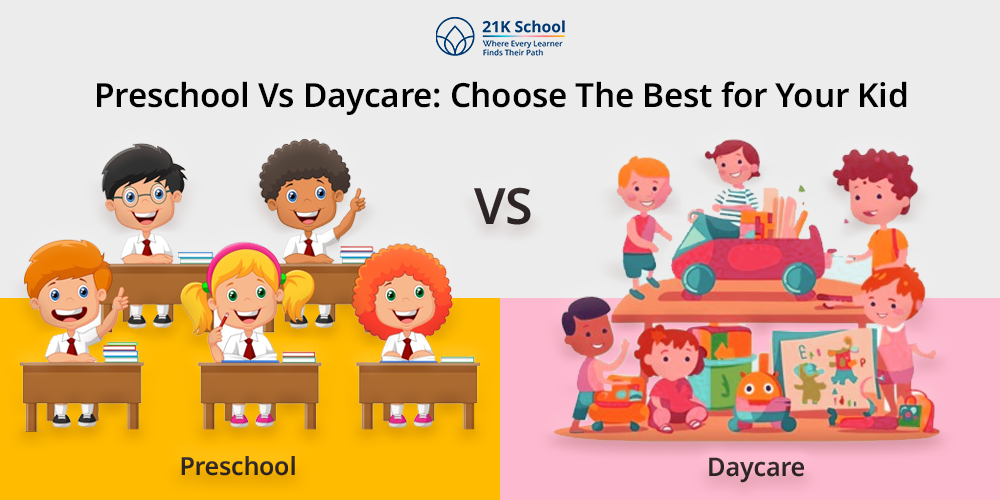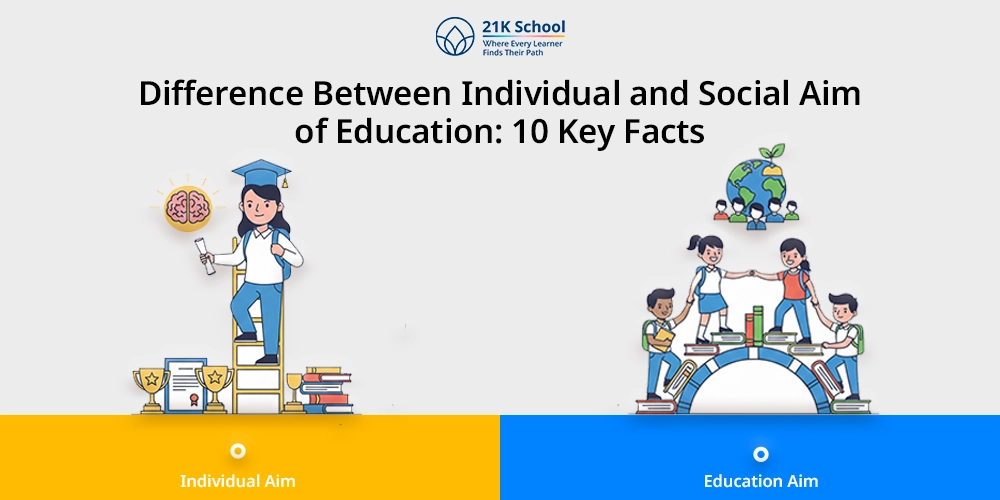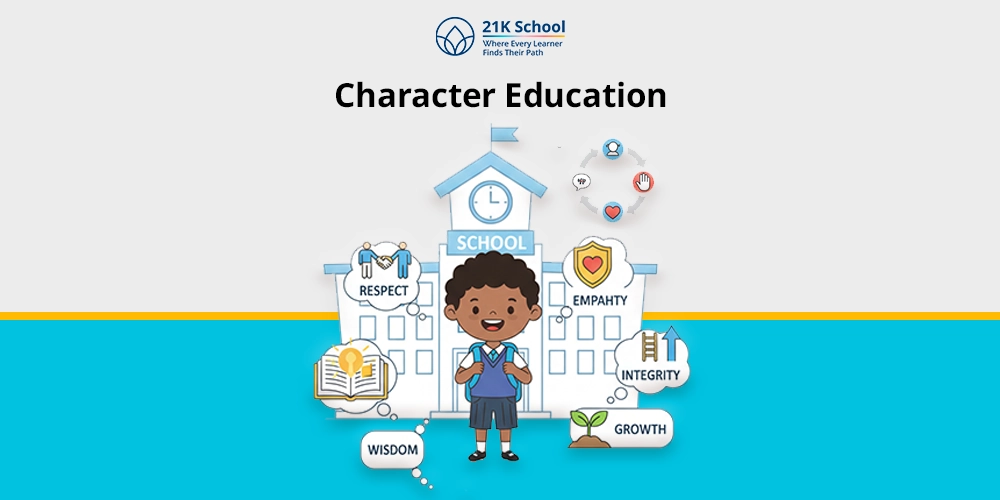
Parenting is a difficult journey especially when it comes to child education. As parents, everyone looks for the best for your child.
Early education and care of children is a primary goal of parents. This time of year is critical for kids’ brain development, emotional growth, and social learning.
While thinking about modern education parents are confused between “preschool” and “daycare”. Choosing one is such an important decision.
While both provide care and supervision, they serve different purposes and follow different philosophies. Understanding the differences between the two can help you choose the right.
Let’s break down each point to differentiate and highlight their pros and cons, and offer insights to help you make the most informed decision.
Contents
What is Preschool?
A preschool is an educational place for children between the ages of 3 to 5 years, designed to prepare them for primary school.
It includes play-based learning, social development, and foundational academic skills within a structured and caring environment.
The primary objective of preschool is to foster a child’s holistic development, encompassing social, emotional, cognitive, and physical growth. It also prepares them for the transition to traditional schooling .
What is Daycare?
Daycare is also called childcare or day nursery. It is a service that offers supervision and care for infants and young children during the day, typically while their parents are working.
It provides a positive and nurturing environment in which kids can interact with others, participate in activities, and learn basic skills.
Daycares are important for supporting working parents and contributing to children’s social and developmental growth.
Exploring the Difference Between: Preschool Vs Daycare
Understanding the difference between preschool vs daycare helps parents to explore which one is best for their children.
Preschool includes structured learning and school readiness for children aged 3-5. While daycare refers to providing childcare and supervision, often for a wider age range, including infants and toddlers.
There are many points which can help parents to select the right one for their kids. Here’s a quick breakdown of each possible comparison between “Preschool” vs “Daycare”:
| S.No. | Particulars | Preschool | Daycare |
| 1. | Focus: | Early childhood education and school readiness | Childcare and supervision while parents are at work |
| 2. | Age Range: | Typically 3 to 5 years | Infants (as young as 6 weeks) to 5 years, sometimes older |
| 3. | Learning Hours: | Usually half-day or part-day (2–4 hours/day) | Full-day care (6–12 hours/day), often year-round |
| 4. | Activities: | Structured learning, storytime, arts & crafts, basic academics | Mix of free play, meals, naps, and minimal structured learning |
| 5. | Curriculum: | Often follows a formal curriculum (e.g., Montessori, Reggio Emilia, etc.) | Less formal; may include some early learning but mostly play-based |
| 6. | Settings: | School-like environment with scheduled routines | Home-like or center-based setting; flexible environment |
| 7. | Staff Qualifications: | Teachers often require early childhood education degrees or certifications | Caregivers may not need formal education; CPR/First Aid certification common |
| 8. | Learning Approach: | Emphasis on cognitive, emotional, and social development | Focus on safety, socialization, and basic routines |
| 9. | Parent Expectations: | Expect school preparation and learning progress | Expect safety, affordability, and flexible hours |
| 10. | Business Opportunity: | Competitive, niche market; high standards expected | High demand, especially in urban areas with working parents |
| 11. | Revenue Model: | Tuition-based, possibly sessional | Monthly/weekly/daily rates; may offer flexible payment plans |
| 12. | Growth Potential: | Moderate, tied to education trends and school readiness awareness | High, driven by dual-income families and demand for childcare |
| 13. | Advantages: | Strong educational foundation; prepares for kindergarten | Extended hours; caters to various age groups; more flexibility |
| 14. | Disadvantages: | Limited hours; may not suit working parents | May lack educational structure; quality varies widely |
Here’s a detail breakdown of preschool vs daycare:
1. Focus
Preschool includes structured early learning and school readiness.
On the other hand, daycare prioritizes a safe and nurturing environment with a broader focus on overall development.
2. Age Range
In preschool children age range between 3 to 5 years old.
While daycare generally serves a wider age range, from infants to school-aged children up to 5 or 6 years, depending on the center.
3. Learning Hours
Preschools and daycare both had different learning schedules. Preschool focuses on early education and kindergarten prep with shorter, structured few hours or half day options.
Daycares offer longer hours or “full-day care” for working parents, combining care, play, and sometimes learning.
4. Activities
Preschool includes circle time, storytelling, sensory play, music, art, basic math and reading, and social interaction.
Daycare includes free play, naps, meals, and some but generally more unstructured.
5. Curriculum
Preschools provide a structured, academic curriculum focused on early learning and school readiness skills.
On the other hand, daycares objective overall child development and care, often with less formal structure.
6. Settings
Preschool is located in schools or dedicated educational centers which provides a learning environment for kids.
While daycare is an easy way which can be home-based, in corporate offices, or in commercial centers.
7. Staff Qualifications
Staff qualifications are a crucial part of any kind of learning.
Preschool staff have qualifications in early childhood education. The team focuses on fixed curriculum and developmental milestones.
On the other hand, daycare staff may have childcare certifications and focus more on providing a safe and nurturing environment for kids.
8. Learning Approach
Learning approach of preschool includes structured early learning and academic preparation.
However, daycare gives importance to childcare and social-emotional development of kids.
9. Parent Expectations
During preschool most parents look for educational growth, developmental assessments, and school readiness.
On the other hand, daycare parents expect more safety, reliability, and flexibility.
10. Advantages
There are many advantages of preschool such as structured routine and curriculum, trained teachers with educational credentials, encourages independence and cognitive development of learners.
While some common advantages of daycare are flexible hours to accommodate working parents, it accepts a broader age range like infants, affordable and widely available.
11. Disadvantages
Some common limitations of preschool are that it doesn’t accept infants or toddlers, higher tuition costs or can be academically pressured for some children.
Daycare may lack structured learning or curriculum. Sometimes staff qualifications can be inconsistent for learners.
Conclusion: Select the Best Option for Your Kid
Choosing one between preschool or daycare is overwhelming for parents. It all depends on your child’s age, needs, behavior, and your family’s schedule and priorities.
The right environment is one that meets your child’s developmental needs while giving you peace of mind as a parent.
Parents are one who sets the foundation for lifelong learning . And taking the major decisions can be challenging but by analysis one can customize a kid’s educational journey.
Many parents combine options, such as placing children in daycare early and moving them into a preschool program at age 3 or 4.
Additionally, some daycares offer preschool-like programs, so it’s worth exploring your local providers.


